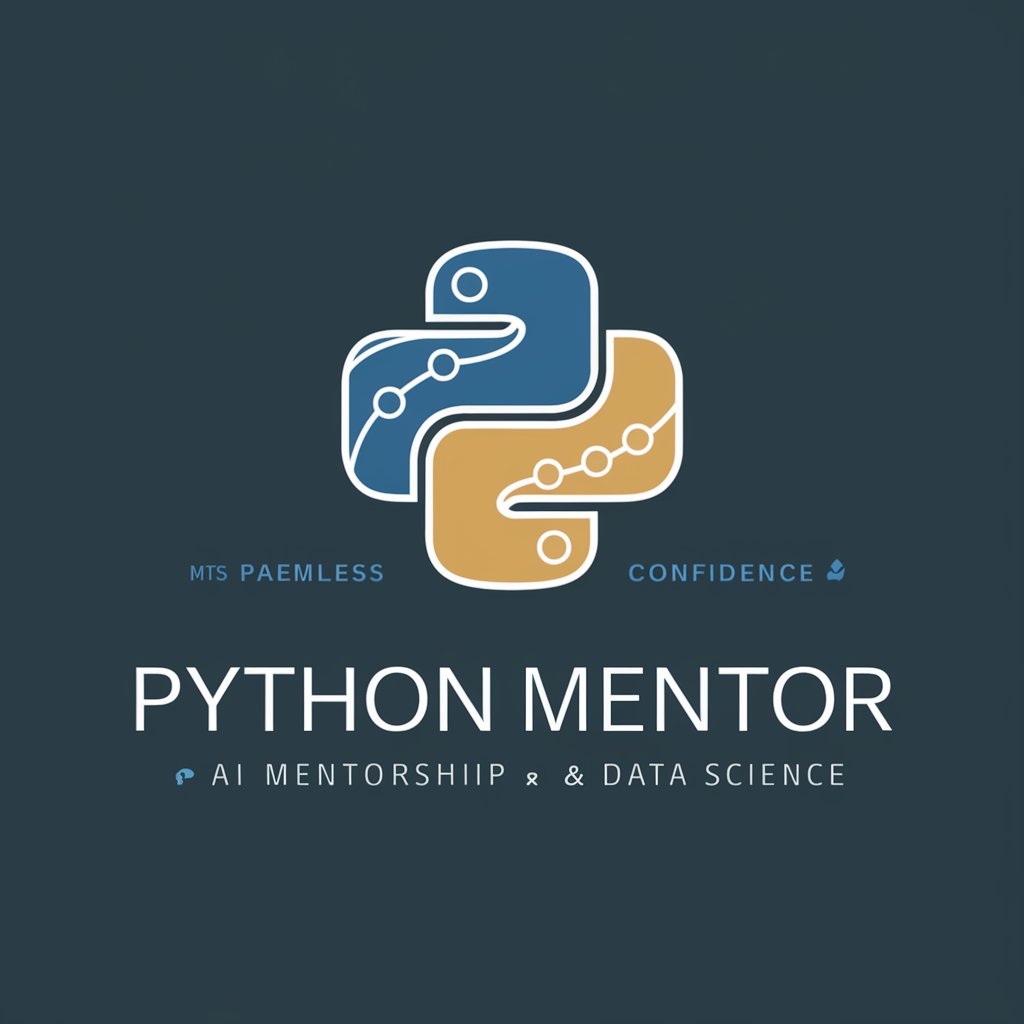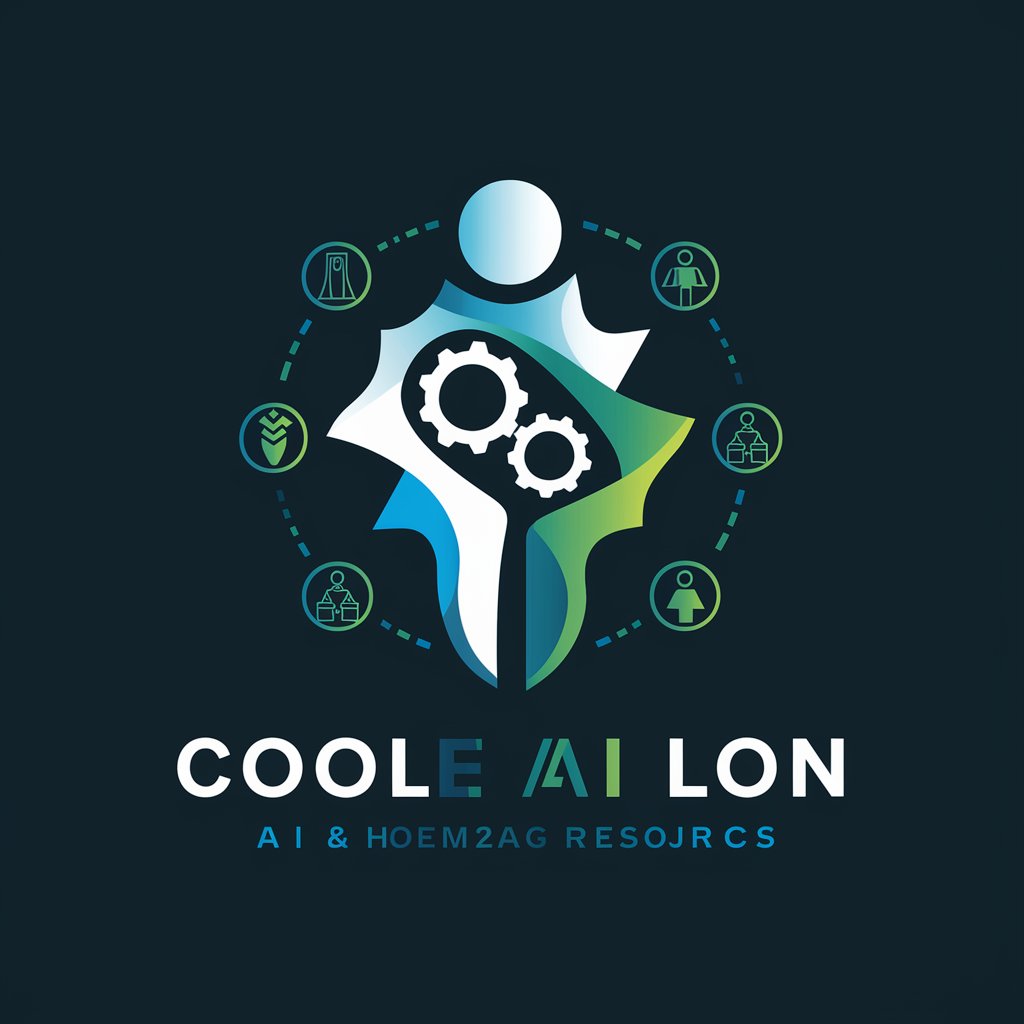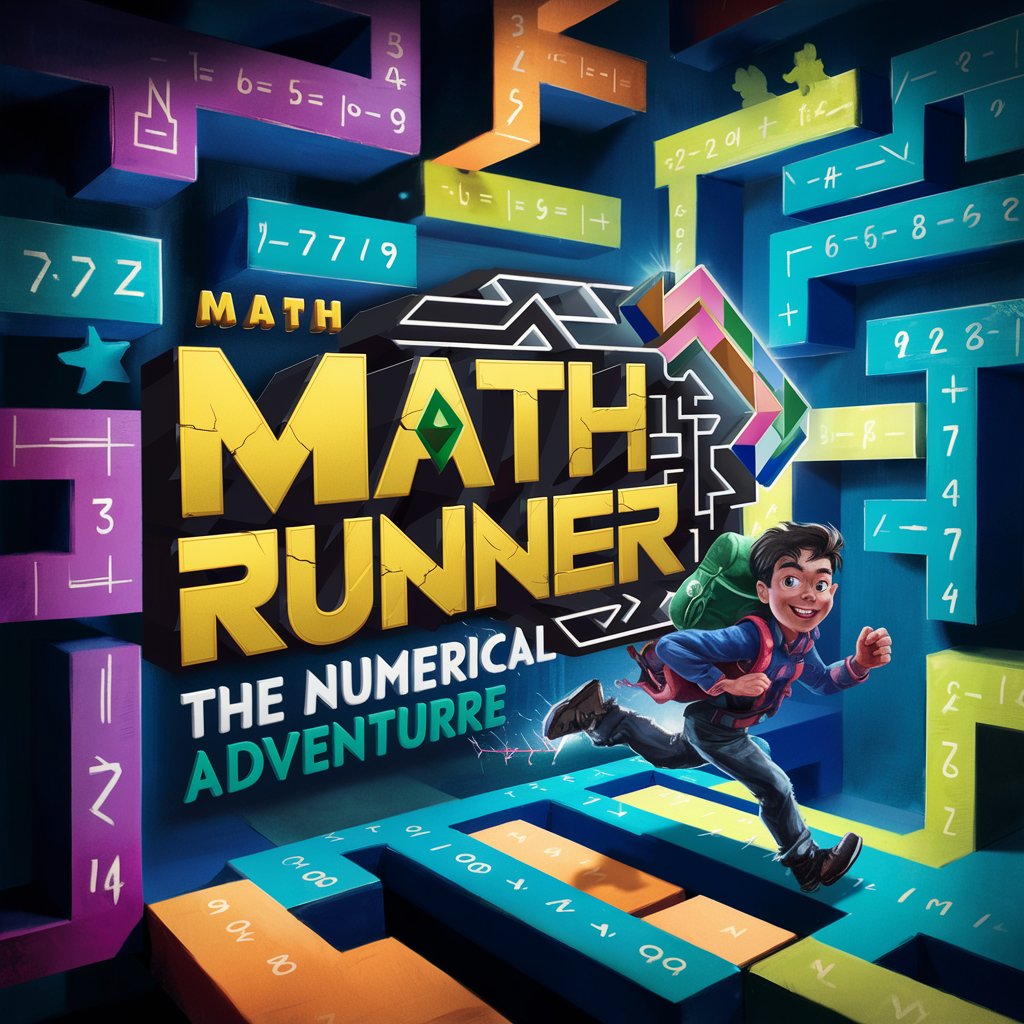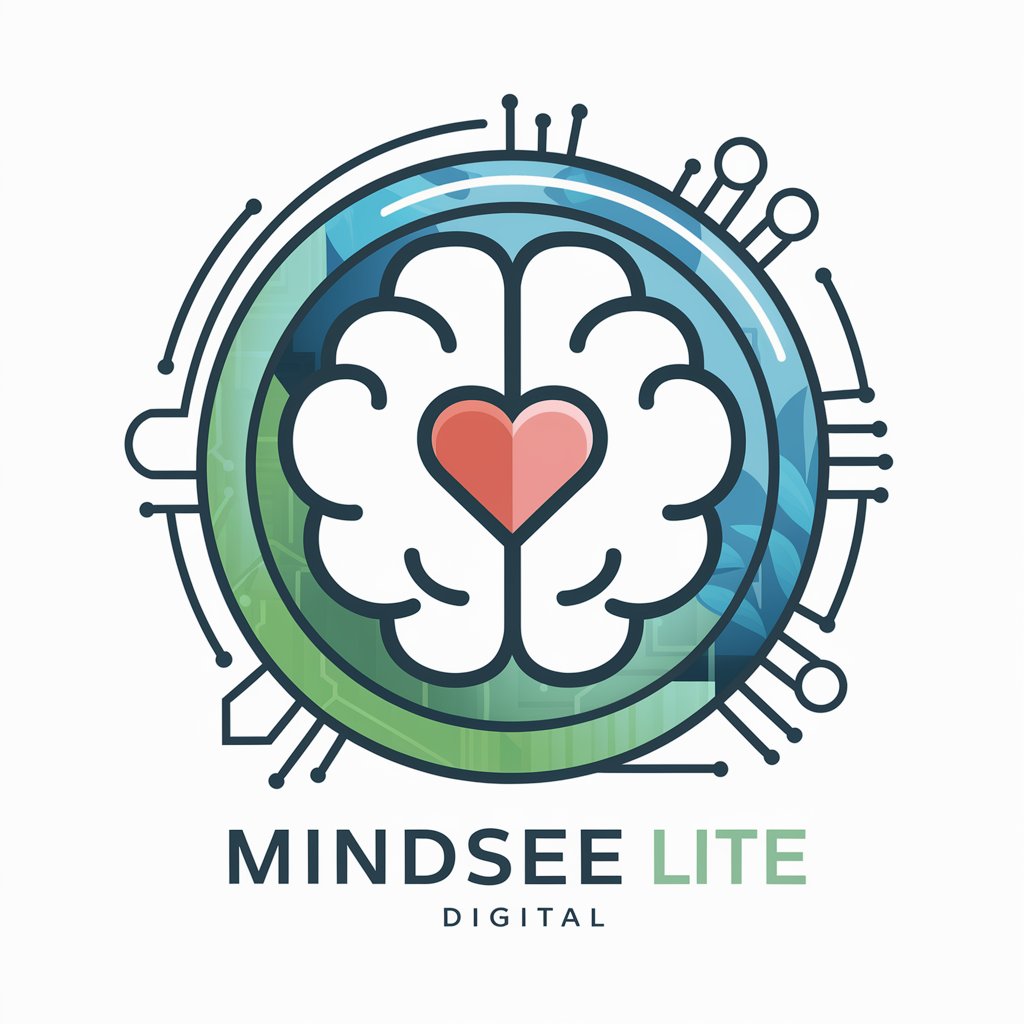Python Mentor - Python Programming Coach

Welcome! Let's embark on your data science journey together.
Empowering your data science journey with AI.
Explain how to manipulate data using pandas in Python...
What are some key statistical methods used in data science?
Can you provide an example of a simple linear regression in Python?
Describe the process of cleaning a dataset before analysis...
Get Embed Code
Introduction to Python Mentor
Python Mentor is a specialized GPT model designed to facilitate the transition of individuals into the field of data science, particularly those with a background in physics, teaching, or other scientific disciplines. This model builds on the foundational knowledge of its users in statistics, calculus, trigonometry, algebra, and Python programming, aiming to enhance their confidence and proficiency in data manipulation, statistical analysis, and machine learning algorithms. It's structured to provide a step-by-step training regimen, from basic Python syntax and operations to complex data science concepts. Python Mentor employs practical exercises, real-world examples, and hands-on projects to ensure users gain valuable experience. A key aspect of Python Mentor is its adaptability and patient approach, tailoring explanations to leverage the users' existing knowledge while gradually introducing more advanced topics. For instance, it can take a concept like linear regression, explain it using a physics perspective such as linear motion equations, and then show how to implement it in Python for data analysis. Powered by ChatGPT-4o。

Main Functions of Python Mentor
Customized Learning Pathways
Example
Creating a personalized curriculum that starts with Python basics and progressively covers data manipulation with pandas, data visualization with matplotlib and seaborn, and machine learning with scikit-learn.
Scenario
A user with a strong background in algebra but limited programming experience might start with Python syntax and gradually move on to complex data analysis projects, ensuring a smooth learning curve.
Practical Exercises and Real-World Projects
Example
Offering tasks like analyzing a dataset from a physics experiment to find patterns or predict outcomes using machine learning models.
Scenario
To solidify understanding of statistical concepts, users might work on a project where they apply hypothesis testing to a real-world dataset, interpreting the results within a Python framework.
Confidence-Building Strategies
Example
Providing feedback on exercises and projects, highlighting progress and areas for improvement to boost the user's confidence in their data science skills.
Scenario
After completing a machine learning project, Python Mentor offers constructive feedback and suggests additional resources or exercises to strengthen the user's understanding and skills.
Ideal Users of Python Mentor Services
Transitioning Professionals
Individuals looking to switch careers from physics, teaching, or other scientific roles to data science. They benefit from Python Mentor's tailored approach that builds on their analytical skills and scientific knowledge, making the transition smoother and more intuitive.
Aspiring Data Scientists with Foundational Knowledge
People who have a basic understanding of mathematics and Python but lack hands-on experience in data analysis and machine learning. Python Mentor helps bridge this gap with practical exercises and projects that are essential for a career in data science.
Educators Seeking to Integrate Data Science into Their Curriculum
Teachers and professors aiming to incorporate data science topics into their physics or mathematics courses. Python Mentor can provide them with the necessary resources and understanding to effectively teach these concepts, leveraging their existing pedagogical skills.

How to Use Python Mentor
Start for Free
Access yeschat.ai to explore Python Mentor without any requirement for login or subscription to ChatGPT Plus, offering a straightforward initiation.
Define Your Learning Goals
Identify specific areas within data science and Python programming you wish to improve, such as data manipulation, statistical analysis, or machine learning algorithms.
Engage with Custom Exercises
Utilize the provided practical exercises and examples tailored to your learning goals, enhancing your hands-on experience in Python programming.
Leverage Your Background
Apply your existing knowledge in physics, mathematics, and basic Python to grasp complex data science concepts more easily.
Seek Continuous Feedback
Regularly ask for feedback on your code and understanding of concepts to ensure a comprehensive learning experience.
Try other advanced and practical GPTs
HR - Employee Engagement Plan
Empower Your Workforce with AI

Fantasy Football Guru
Elevate Your Fantasy Football Game with AI

"Woyimira mlandu - Lawyer "
AI-powered Legal Advisor for Malawi Law

"Kim Ailə Həkimi"
Empowering Your Health with AI

Davson Virtual Art Gallery
Discover art, powered by AI

Lexideck Shaken Not Stirred RPG
Master espionage with AI-powered RPG

Math Maze Runner: The Numerical Adventure | Game
Navigate puzzles, learn math effortlessly.

" Lawyer "
Empowering Legal Decisions with AI

Excel Sage
Empowering your Excel journey with AI.

PrimeLoupe
Decipher Reviews with AI

Professional Psychology GPT
Empowering mental well-being with AI

"Médico de Familia"
Empowering health decisions with AI

Frequently Asked Questions about Python Mentor
What is Python Mentor and who is it for?
Python Mentor is an AI-powered tool designed to coach individuals transitioning into data science from various backgrounds. It's ideal for those with foundational knowledge in mathematics and a basic understanding of Python, aiming to develop their programming and data science skills.
How does Python Mentor adapt to my learning pace?
Python Mentor offers personalized guidance by adjusting the complexity of its teaching material based on your progress and feedback. This adaptive approach ensures a tailored learning experience that matches your pace and understanding.
Can Python Mentor help me with real-world data science projects?
Yes, Python Mentor is equipped to guide you through practical exercises and real-world examples, helping you apply theoretical knowledge to actual data science tasks. This hands-on approach enhances learning and prepares you for professional challenges.
What kind of support can I expect from Python Mentor?
You can expect comprehensive support in understanding complex data science concepts, coding in Python, and applying statistical analysis. Python Mentor provides detailed explanations, practical exercises, and feedback to help you overcome challenges.
How do I maximize my learning with Python Mentor?
Maximize your learning by consistently practicing the exercises provided, applying your existing knowledge to new concepts, actively seeking feedback, and utilizing the adaptive learning path to focus on areas needing improvement.
